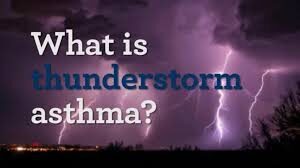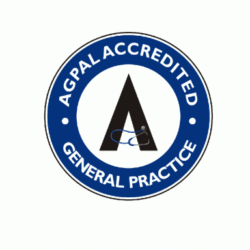
Grass pollen season (October- December) brings the chance of thunderstorm asthma and hay fever. If you suffer from hay fever or asthma, it can be serious and life threatening, if not managed well. Although it does not happen every year, we must prepare ourselves for an epidemic thunderstorm asthma. If you have asthma or hay fever it can trigger severe asthma symptoms if not managed well. This is highest in adults who are sensitised to grass pollen and have seasonal allergic rhinitis even without known asthma.
What should we do to prepare ourselves?
• Talk to your doctor: The worst outcomes are seen in people with poorly controlled asthma. Even if you don’t think you have asthma or hay fever do not ignore wheezing or shortness of breath like symptoms – it is always best to consult with your doctor
• Asthma action plan & first Aid: Get an up to date asthma management plan. If you have known asthma or hay fever it is important to see your doctor for an updated asthma action plan or hay fever treatment plan and learn asthma first aid.
• Stay fit and active: A healthy lifestyle can help you stay in control of your asthma symptoms and feel well
• Medication: Medication is essential to manage asthma well. Always carry your reliever medication with you, which is available from your pharmacy. If you suffer from seasonal hay fever, it is best to speak to your doctor about taking a regular antihistamine, even if you’re not symptomatic
• Remember- taking a preventer properly and regularly is the key to preventing asthma exacerbations and therefore reducing your risk of thunderstorm asthma. This can make the airways less sensitive to triggers and reduce the inflammation of the airways.
• Stay inside: Avoid being outside during thunderstorms form October- December. Try stay inside, close doors and windows. You can use an air conditioner to filter the air. Avoid physical activity on high pollution days or if smoke is in the air
• Be Alert: You can download the Vic Emergency App on your phone to receive advice and warnings about potential epidemic thunderstorm events in your area
What to do if you get asthma symptoms
• Follow your asthma management plan, if you do not have one follow the 4 steps of asthma first aid




